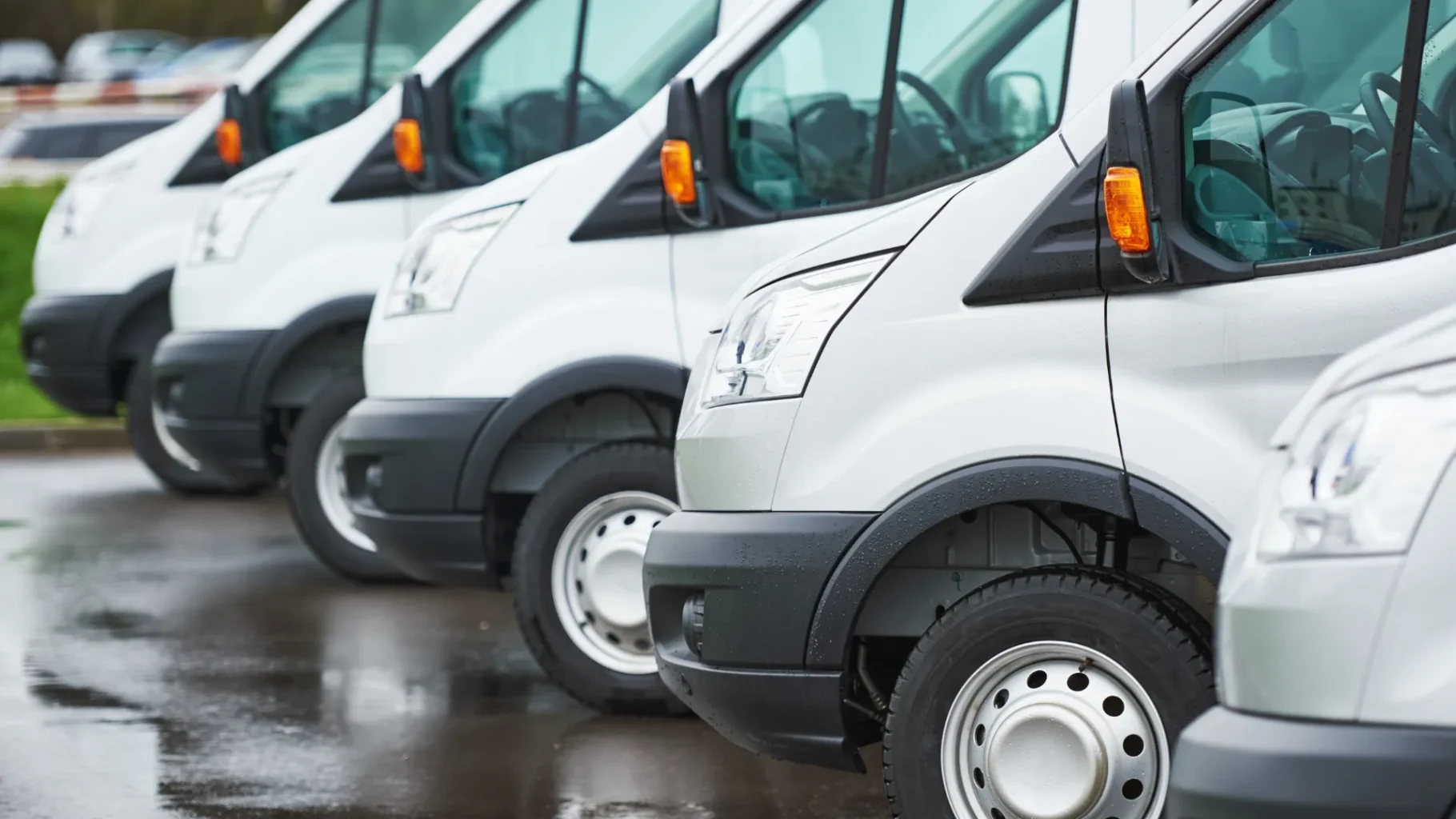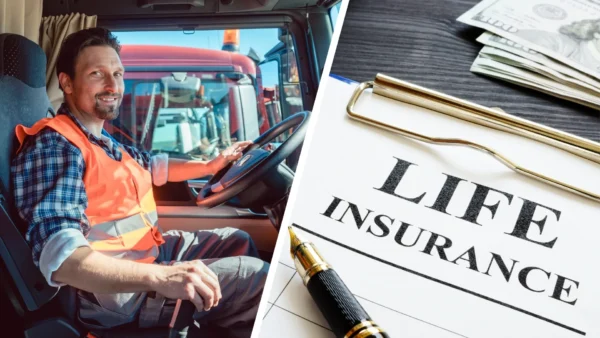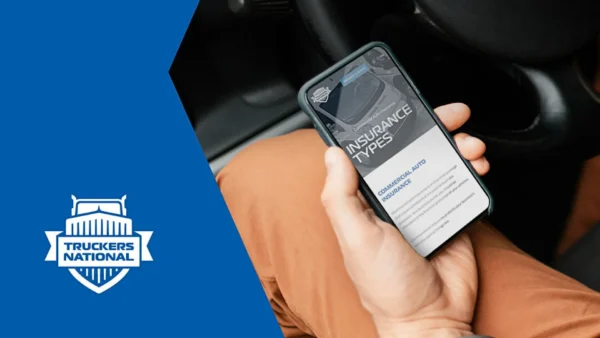11.25.24
Commercial vs Personal Auto Insurance: What’s the Difference?
Auto insurance is a must for anyone on the road, but for owner-operators, it’s a necessity that goes beyond standard coverage. Whether you’re driving a cargo van or managing a small fleet, having the right insurance is crucial for protecting your business against unforeseen events and harm caused by acts of other road occupants.
Owner-operators have unique needs that differ significantly from the average driver. While personal auto insurance covers your vehicle for everyday use, commercial auto insurance is designed to meet the demands of business operations. Conveying these differences between commercial and personal auto insurance is a goal of this blog. We’ll clarify the specifics, helping you make an informed decision about which type of coverage best suits your needs.
Understanding Personal Auto Insurance
As its name suggests, personal auto insurance is designed to protect individual drivers and their vehicles. This type of insurance typically covers private, non-commercial activities, such as commuting to work, running errands, or taking road trips. The primary goal is to offer financial protection against accidents, theft, and other damages.
Personal auto insurance includes several types of coverage. Liability coverage is fundamental, protecting you from financial responsibility if you’re at fault in an accident causing injury or property damage. Collision coverage pays for repairs to your vehicle after an accident, while comprehensive coverage handles non-collision-related incidents, such as theft, vandalism, or natural disasters. In addition, personal auto insurance often includes medical payments or personal injury protection (PIP) to cover medical expenses for you and your passengers, regardless of fault.
However, personal auto insurance has some limitations, especially for owner-operators. These policies are not designed to cover business activities or commercial use of a vehicle. For instance, if you use your cargo van to transport goods, deliver packages, or perform any business-related tasks, your personal auto insurance may not provide coverage in the event of an accident. Insurers often deny claims if they discover the vehicle was used for commercial purposes at the time of the incident.
The scope and limitations of personal auto insurance make it inefficient for commercial needs. While it provides essential coverage for personal use, when it comes to protecting your commercial vehicle and business activities, commercial auto insurance is the way to go.
Understanding Commercial Auto Insurance
Commercial auto insurance for owner-operators or fleet owners is specifically designed to protect vehicles used for their business purposes. Owner-operators always prefer this type of insurance as it covers the unique risks associated with running a logistics or transportation business. It offers broader protection compared to personal auto insurance, ensuring your operations remain secure and uninterrupted.
A typical commercial auto insurance for fleet owners and owner-operators includes several key coverages. First is liability coverage, which protects you from financial losses if your vehicle is involved in an accident that causes injury or property damage. This is especially important for owner-operators, as accidents can result in significant claims and lawsuits. On the other hand, physical damage coverage, which includes both collision and comprehensive coverage, protects your vehicle from various risks, including accidents, theft, vandalism, and natural disasters.
Commercial auto insurance for cargo vans also often includes cargo insurance, which covers the goods you are transporting. This type of insurance is especially recommended for owner-operators who haul valuable freight, as it protects you against losses or damages to the items you are delivering. Other coverages may include uninsured and underinsured motorist coverage, which protects you if you are involved in an accident with a driver who lacks adequate insurance.
Commercial auto insurance is necessary in many scenarios. If you use your cargo van for transporting goods, making deliveries, or any business-related activities, personal auto insurance will not provide adequate coverage. Commercial policies are tailored to the needs of businesses, offering higher liability limits and specialized coverages that reflect the risks of commercial driving.
Key Differences Between Commercial and Personal Auto Insurance
Commercial and personal auto insurance differ much further than their names. These distinctions impact coverage options, policy limits, and costs, ultimately affecting how well-protected your business is.
Commercial policies typically include higher liability limits compared to personal auto insurance. This is important for owner-operators, as accidents involving cargo vans can result in significant damage and higher liability claims. In addition, commercial insurance often includes specialized coverages like cargo insurance, which protects the goods being transported. This is essential for drivers involved in expedited freight and last-mile delivery, where the value of the cargo can be substantial.
In contrast, personal auto insurance covers everyday driving needs. While it includes liability, collision, and comprehensive coverage, these are generally set at lower limits, sufficient for personal use but inadequate for business-related risks. Personal auto policies also lack the specialized coverages needed for commercial activities, such as transporting goods or making deliveries.
Cost is another critical factor. Commercial auto insurance tends to be more expensive than personal auto insurance due to the higher risks associated with business use. However, this increased cost is justified by the broader and more comprehensive coverage it provides. For owner-operators, the investment in commercial insurance benefits with better protection of their livelihood and business operations.
A common concern among owner-operators is whether they need two separate policies if they use the same vehicle for both personal and commercial purposes. The good news is that you do not need personal insurance for a commercial vehicle if it is primarily used for business. However, it is advisable to apply a non-trucking liability endorsement where available. This endorsement covers you when driving the vehicle for personal use, ensuring that you always have appropriate coverage.
For example, if you use your cargo van to transport goods during the week and for personal errands on weekends, a commercial auto insurance policy with a non-trucking liability endorsement will provide the necessary coverage. This setup ensures that you are protected regardless of how the vehicle is being used, offering peace of mind and comprehensive protection for your business and personal needs.

Requirements from Carriers or Freight Broker Companies
Owner-operators need to meet the requirements set by carriers or freight broker companies to secure contracts and maintain successful operations. These requirements are designed to ensure safety, reliability, and adequate protection against potential risks.
One of the most common requirements is auto liability insurance with a minimum coverage of $1,000,000. This high level of liability insurance is required to protect against significant claims arising from commercial vehicle accidents. Additionally, carriers and freight brokers often require cargo coverage of at least $100,000 to protect the goods being transported. This ensures that any damages or losses to the cargo are adequately covered, providing peace of mind to both the owner-operator and the client.
Beyond these mandatory coverages, there are additional policies that, while not always required, can be highly beneficial. General liability insurance covers a range of risks not typically included in auto policies, such as damage to third-party property and bodily injury occurring during business operations. Non-trucking liability insurance, also known as bobtail insurance, provides coverage when the vehicle is used for personal reasons, enhancing overall protection.
Occupational accident insurance is another valuable addition, offering coverage for medical expenses and lost wages if the driver is injured while working. Life insurance can provide financial security for the driver’s family in case of a fatal accident. These additional coverages can increase the overall cost of the policy but offer significant benefits in terms of comprehensive protection and risk management.
Adhering to high insurance standards helps build trust with carriers and freight brokers, facilitating smoother partnerships and more opportunities. For owner-operators, this is the key to long-term success and growth in the logistics industry.
Conclusion
As differences between personal and commercial auto insurance are critical, choosing the right type of insurance is vital for owner-operators. The specifics of each type highlight the importance of commercial coverage for business operations. If you’re an owner-operator, key coverages like auto liability and cargo insurance are essential, while additional policies such as general liability and non-trucking liability insurance offer extra protection. Choosing the right insurance coverage is crucial for keeping your business running smoothly and safeguarding your assets.
For more information or to get a quote, contact Truckers National Insurance. At TNI, we offer more than just policies; we provide the experience and knowledge necessary to ensure you have the right coverage when you need it. Secure your business and drive with confidence by partnering with us.



